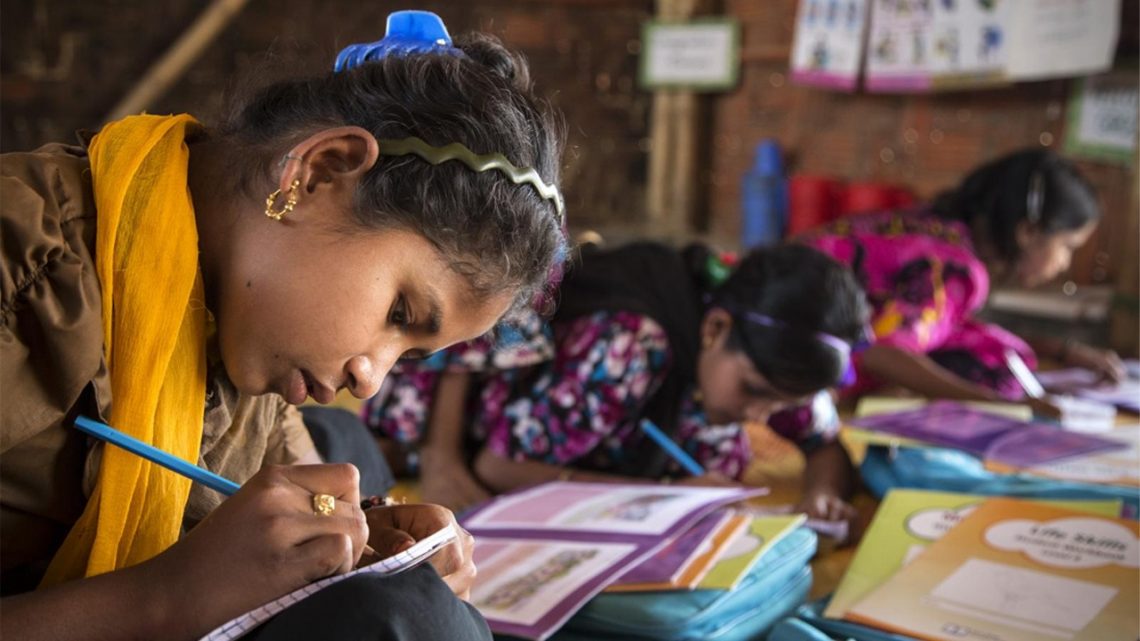With a new academic session in full swing, most J&K schools have not prepared a sports calendar, relegating physical education to the back burner. Government, on the other hand says sports curriculum is being focused on at every level.
Alok Kumar, Principal Secretary to J&K Government (Department of Education) while speaking to KIF said that sports was being accorded ‘adequate’ importance in the education system of J&K. The Department of Youth Services and Sports, he said, has been organizing tournaments, engaging youth and building sports grounds across the UT, he said. “We have adequate number of physical education teachers also in every school,” he said. The top official was referring to the schools run by government.
A senior official in education department said that in Jammu and Kashmir, the Department of Youth Services and Sports has been actively conducting tournaments and competitions at every level, engaging youth in various sports activities.
“The UT has been part of almost all major sports from a very long time. However, when it comes to sports, it is much of an extra-curricular activity and often an event that can be given a miss by the students. The overall development of the child, being linked to sports as much as to academics is a far call and even the teachers and planners dole out a step motherly treatment to sports activities,” he said.
A national level basketball player and academician, Zaid Mohammad told KIF that the lack of infrastructure, equipment and opportunities has kept the young ones far away from holistic physical and mental development.
“As a result, we are developing into an unhealthy nation of young ones, where obesity and addictions have begun to be a problem of the majority,” he said.
He said that the NEP 2020 document has been elaborative on various aspects of education but has not been as generous in providing space to sports as part of curriculum.
The policy states that “The curriculum must include basic arts, crafts, humanities, games, sports and fitness, languages, literature, culture, and values, in addition to science and mathematics, to develop all aspects and capabilities of learners; and make education more well-rounded, useful, and fulfilling to the learner. Education must build character, enable learners to be ethical, rational, compassionate, and caring, while at the same time prepare them for gainful, fulfilling employment.”
The policy states that the integration of sports helps in developing skills such as collaboration, self-initiative, self-direction, self-discipline, teamwork, responsibility, citizenship, etc.
It calls sports integration a cross-curricular pedagogical approach and urges that the learning be undertaken in classroom transactions to help students adopt “fitness as a lifelong attitude and to achieve the related life skills along with the levels of fitness as envisaged in the Fit India Movement”.
The integration has been recognized as a determining factor in fostering holistic development: physical development, psychological development and enhancement of cognitive abilities. Moreover, the role of sports in learning the concept and strength of team work is unmatched.
That’s about it. The policy is silent on how sports can be integrated into education and curriculum.
Last year, Union Education and Skill Development Minister, Dharmendra Pradhan announced that the National Education Policy (NEP) 2020 envisages sports as a part of the curriculum and laid emphasis on sports-integrated learning as well as adopting fitness as a lifelong attitude.
The scenario however has remained such that the schools, government as well as privately run, have put their entire machinery on making news with top positions, marks percentage in 90s and pass percentages.
Sports is much more than the exhibition of a person’s physical abilities. It helps in development of life skills. The attitude of families towards participation of their young ones in sports is rudimentary and rooted in defeatism. They do not wish their children to take sports too seriously. “You will not become the next Tendulkar!” is an idiom that has found space in our daily discourses in homes.
An important role of sports in education is its ability to reduce illicit drug use among youth. A study published in 2016 in Pediatrics concluded that “daily participation in sports and exercise may serve as a protective factor for nonmedical opioid and heroin”. Many other longitudinal studies have also shown higher levels of exercise being associated with lower levels of alcohol, cigarette, and marijuana use.
It is time that J&K Government constitutes an expert committee to make the schools, parents and society realize the importance of sports in the overall development of a child and formulate a strategy that every child, at every school, is participating in sports. The results could change the fate of the youth who are getting warped up with an onslaught of gadgets, junk foods, sedentary lifestyle and unhealthy stress on academics.




